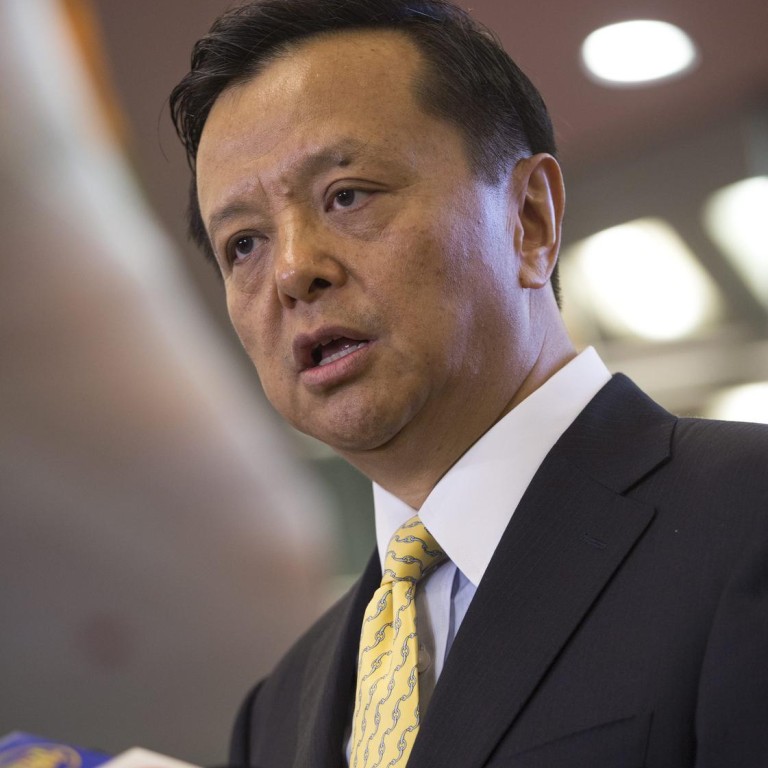
Charles Li calls for a 'rational' debate on dual listings
Now that the dust has settled on whether the Hong Kong stock exchange should grant Alibaba a special waiver to list dual-class shares, HKEx chief executive Charles Li Xiaojia is stirring up the issue again. He kicks off his latest blog with: "Now that Alibaba has gradually faded from media attention, maybe our market can finally have a more rational and open discussion about weighted voting rights and our future competitiveness." The implication here is that the previous discussion, which resulted in Alibaba deciding to list in the United States rather than in Hong Kong, was somehow irrational.
Li takes issue with the "one share, one vote principle" which he seems to think has wrongly been seen as the Hong Kong market's "core value". This, he argues, is not universally applied and ironically takes the case of HKEx which, although a listed company, the government gets to elect six of the 12 board members.
Instead, Li thinks that rule of law and due process are the market's core values. They dictate that "we must not change our rules haphazardly for a single company and any significant change would need to go through due process. But on the other hand, due process does not dictate refusal to debate the future of our market."
You can see where he is going with this. He makes the point that dual listings are permitted in the US, saying, "It is difficult to conclude that US regulators chose to allow the dual-class share regimes because they do not care about investor protection. The success to date by firms like Google and Facebook makes it difficult for us to conclude that US investors have lost out as a result of such structures."
One share, one vote, he says, has a nice ring to it and, "if we only care about reputation, this approach will certainly help to maintain Hong Kong's nominal regularity purity". The corollary of being overly concerned with what he calls "regulatory purity" and persisting with a ban on dual shares is that China's technology and new economy companies will list in the US rather than Hong Kong.
"If this becomes a trend, Hong Kong could lose a huge franchise for good, " he says, getting to the meat of his argument. This of course hurts competitiveness, he says.
So for all the chat about having a rational debate, Li's discourse does not take the discussion any further and is a restatement of the view that if Hong Kong sticks to one share, one vote - this will affect the Hong Kong market's "competitive" position and will result in the loss of new China listings to the US.
One aspect of the discussion he neatly avoids is that in the US, investors can use the class action system to obtain legal redress. This is not available in Hong Kong where the cost of legal action is usually not worth it. This is a huge difference which Li does not address. There is also the question of whether Li or the HKEx is the right body to be initiating this discussion. It has a huge vested interest in this matter, and as such is deeply conflicted. It's not unlike having a rabbit in charge of the lettuce patch. This topic shows no sign of going away.
Jim Walker's Asianomics has come out with a cheery report that says Hong Kong's current positive economic demeanour is masking the tell-tale signs of a sharp and possibly unprecedented correction.
"Hong Kong is in the path of a typhoon developing on the mainland," Sharmila Whelan, an analyst with Asianomics, told . "A nasty downturn in China and a sudden sharp correction in the Hong Kong property market would severely buffet the territory's economy. China's problems have become insurmountable and the likelihood that 2014 will prove the year of reckoning is growing."
The problem lies in the banking system, according to the report. Before the financial crisis, China had never represented more than 10 per cent of total external claims. Post-crisis, there has been a dramatic shift, with Hong Kong financial institutions' exposure to the mainland rising to 49 per cent. Much of this is from the offshore units of big mainland banks, which have been using the city as a base for sourcing foreign funding that is re-lent in the domestic economy. A real estate crisis on the mainland would have a serious impact on Hong Kong bank balance sheets.
Have you got any stories that Lai See should know about? E-mail them to [email protected]

